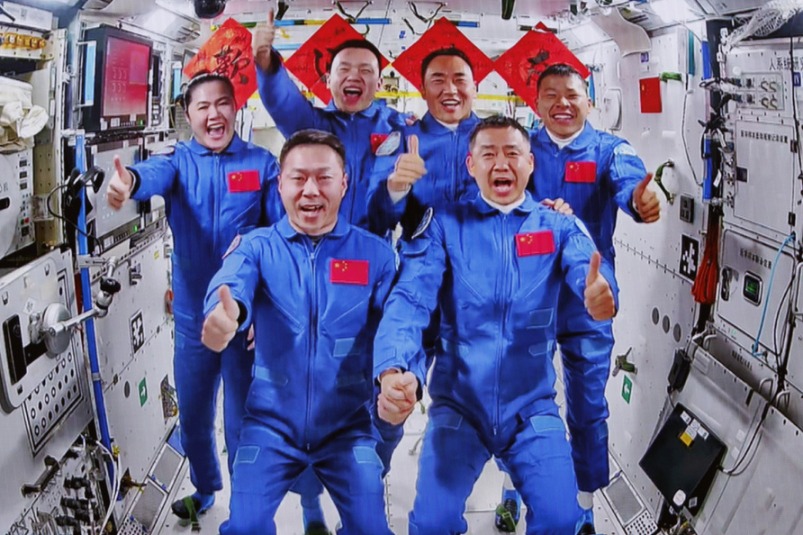China, Iraq establish joint research lab to ensure energy stability

Despite having the world's fourth-largest oil reserves and abundant solar energy resources, Iraq struggles with frequent power cuts. A new partnership between China and Iraq, however, is hoping to address the problem.
Wuhan University in Hubei provincial capital Wuhan and the University of Baghdad in Iraq have joined hands to tap the potential of solar power and smart technology in tackling the Middle East state's electricity crisis.
The two education institutions will establish a joint laboratory for smart microgrids and energy storage.
Approved by China's Ministry of Science and Technology late last year, the joint laboratory is supported by Wuhan University's School of Electrical Engineering and Automation on its Chinese side.
The lab will leverage the school's advanced experimental facilities — including those for power system dynamic simulation, electricity equipment and system safety, and power grid environmental protection — to provide optimal research conditions in China, according to a statement from the school, responding to questions from China Daily.
The University of Baghdad plans to allocate 1,000 square meters of dedicated research and office space for the joint laboratory, the statement said. Meanwhile, its existing scientific facilities and equipment will also be made available to the joint lab.
As an Iraqi, Ghamgeen Izat Rashed, an associate professor at the Wuhan University, expressed his high hopes that the joint lab will help address the electricity crisis and reduce carbon dioxide emissions in his motherland.
Due to its weak power grid infrastructure, Iraq struggles to balance electricity generation and consumption, he said. The country faces electricity shortages during peak consumption hours, largely attributed to low electricity prices, while significant amounts of electricity are wasted during off-peak periods.
"Iraq is plagued by high carbon dioxide emissions and increasingly severe environmental pollution because it is heavily dependent on fossil fuels for power generation," he added.
The joint lab envisions a three-step approach to addressing the problem.
Fang Hualiang, an associate professor at Wuhan University, said the first step aims to install solar and electricity storage systems for each Iraqi household to leverage abundant solar resources.
He emphasized the initiative's economic feasibility, noting that the cost for a 10-kilowatt household solar photovoltaic system accompanied by a power storage battery with a capacity of 10 kilowatt-hours is about $7,000, compared to the average Iraqi household's annual income of $6,000 to $10,000.
Despite its cheap electricity prices, Iraq's severe power shortages force most Iraqi households to rely on their own power generators to meet their needs, Fang said.
This results in average monthly expenses of $35 to $100, with some families spending up to $300 per month, he added.
The second step involves smarter grids that can better balance supply and demand, he said. In this step, electricity waste will be minimized and the power grid will be significantly stabilized with the deployment of smart technologies such as a micro-grid balancing mechanism.
With the low-carbon transition and carbon neutrality as its goal, the third step envisions precisely balancing supply and demand for renewable energy.
Using blockchain technology, this step will see a carbon credit-based incentive mechanism introduced, rewarding families that conduct energy-saving actions with tradable "digital assets", Fang added.
He said that two companies — one registered in Iraq and the other in China — are authorized to utilize all intellectual property from the joint laboratory for industrial applications, as agreed by the two universities.
With in-depth knowledge of the Iraqi market, the two companies can provide front-line market insights to the R&D team.
"This ensures potential technological innovations from the lab align closely with Iraq's market demands, and can facilitate the precise matching needed to industrialize its research outcomes," Fang said.
The two companies will also be expected to promote the export of products and services from China's photovoltaic and energy storage industries.
Leveraging Wuhan University's expertise in remote sensing, the research team of the joint lab will employ satellite and drone monitoring to track carbon emissions in the Middle East and Southeast Asia, as they work to help with renewable energy deployment planning.
"We will also strive to come up with replicable green development solutions that can facilitate energy transitions in countries involved in the Belt and Road Initiative," Fang said.
Contact the writers at [email protected]




































